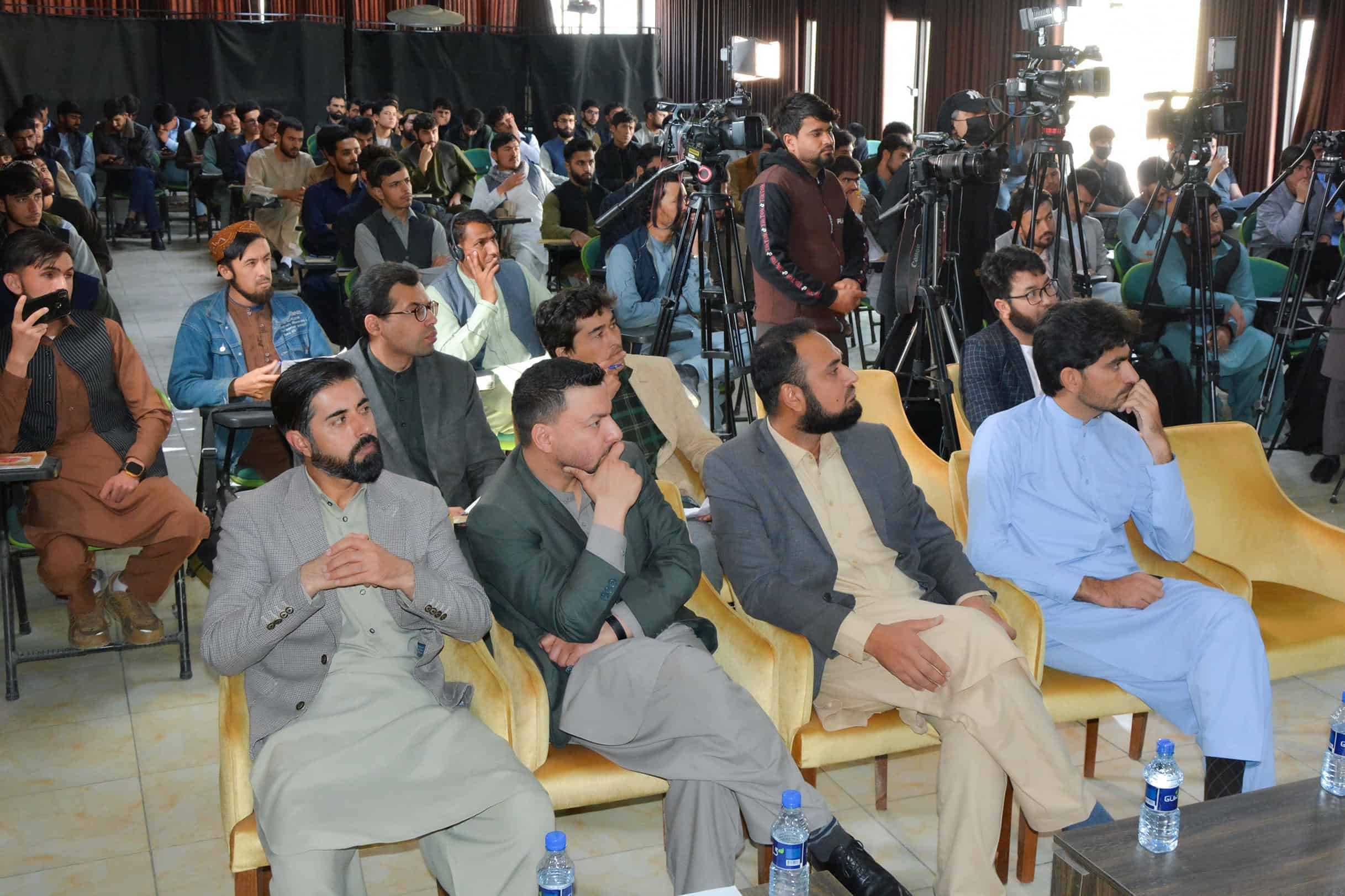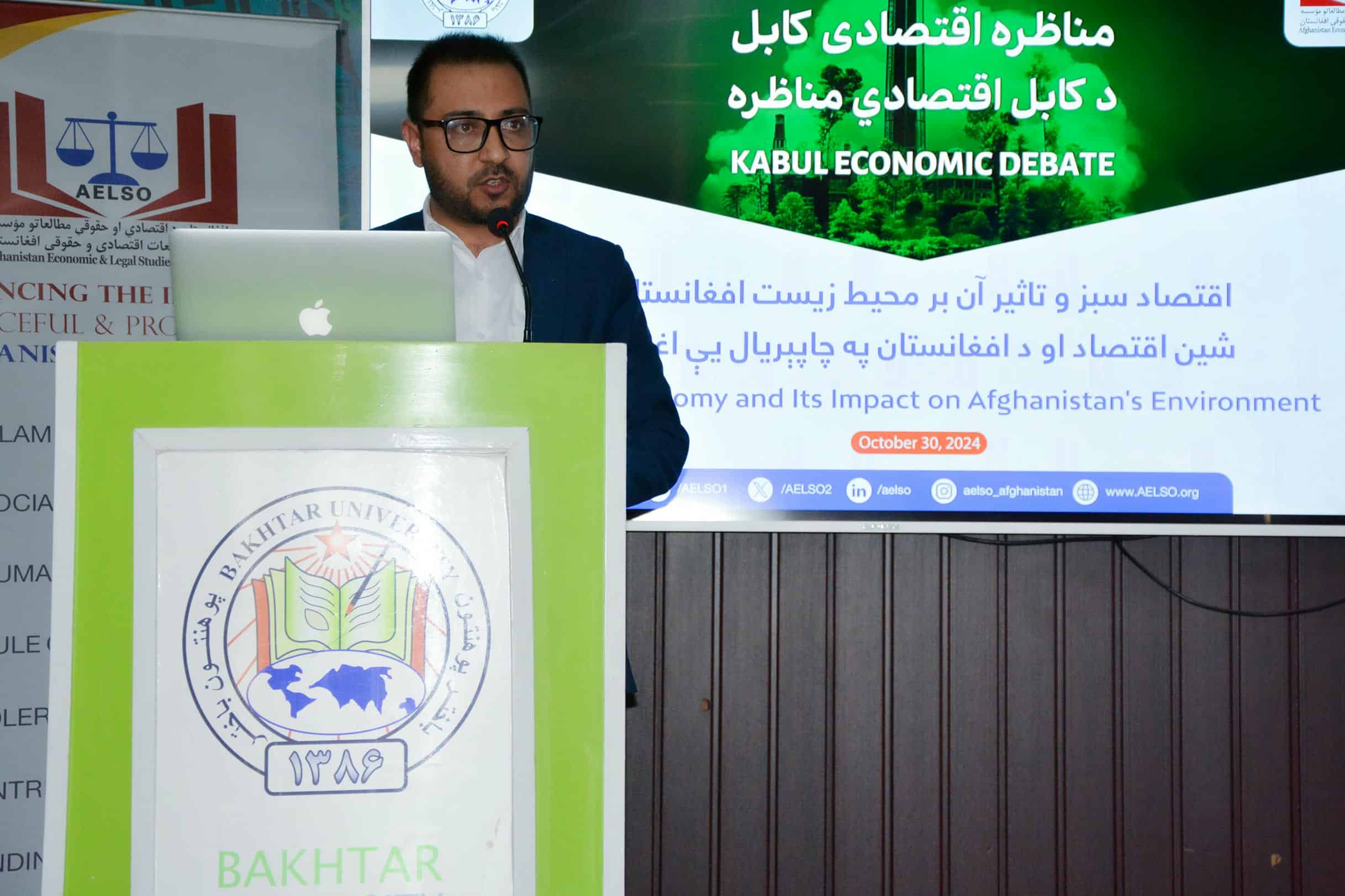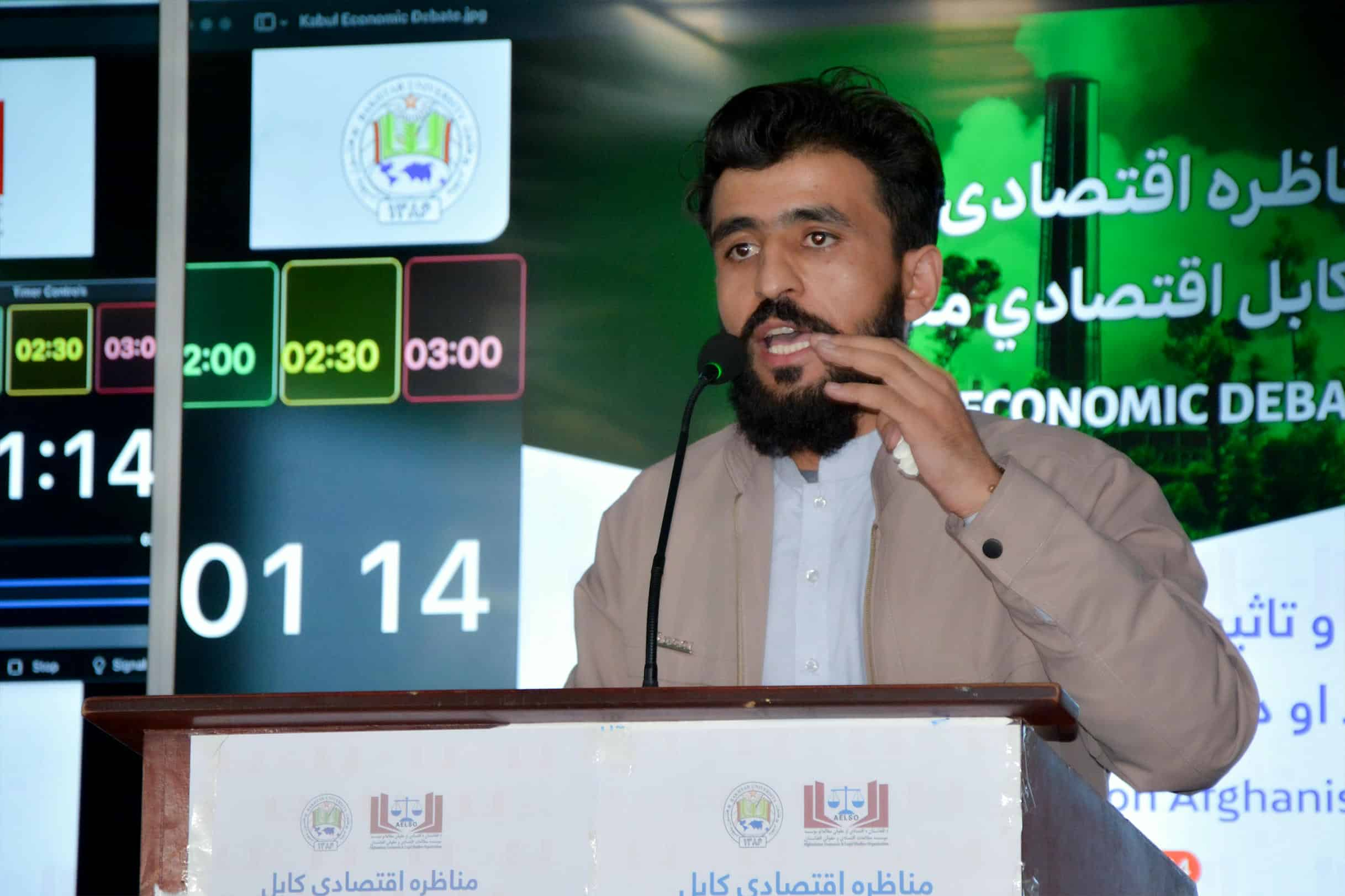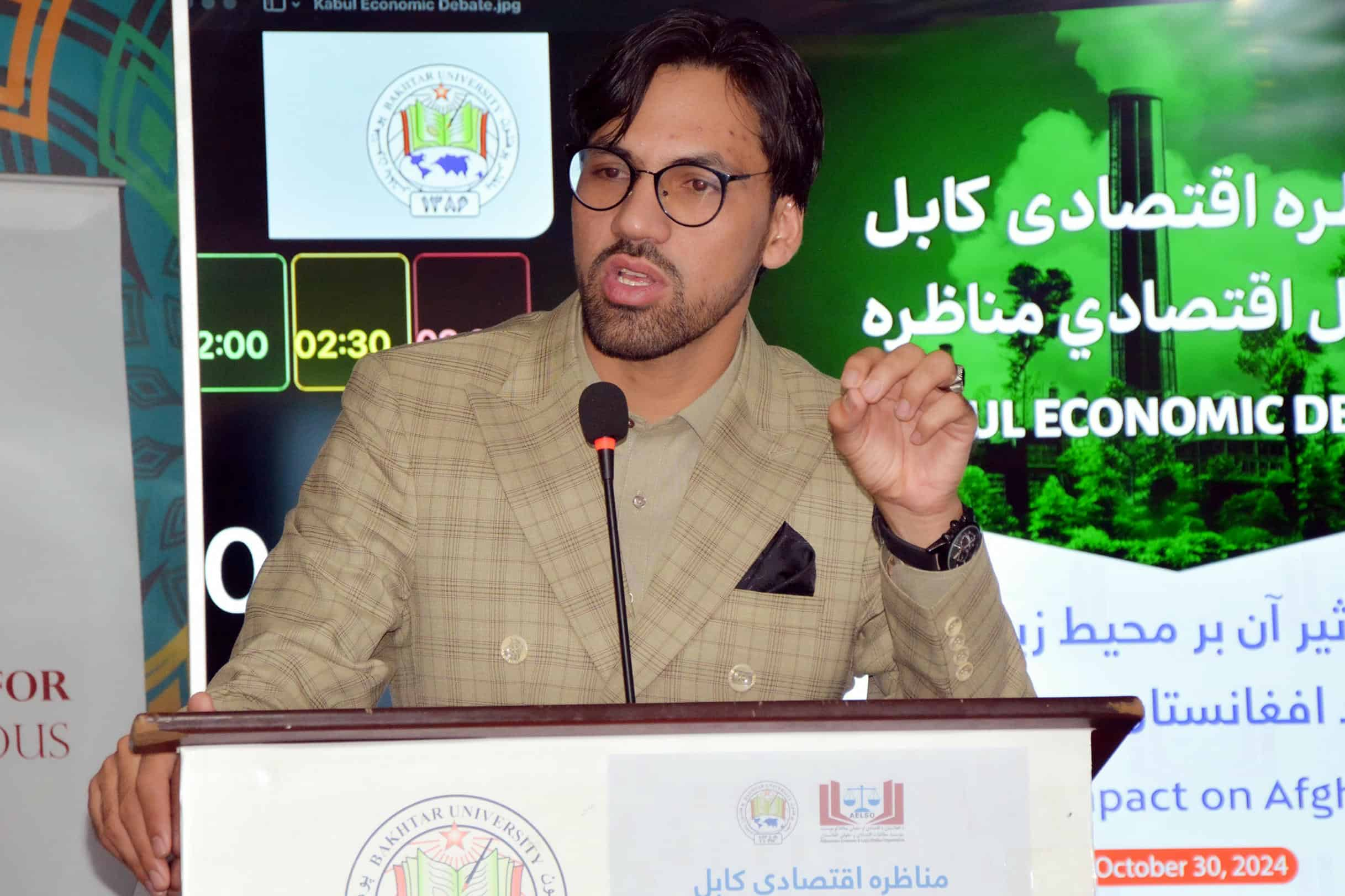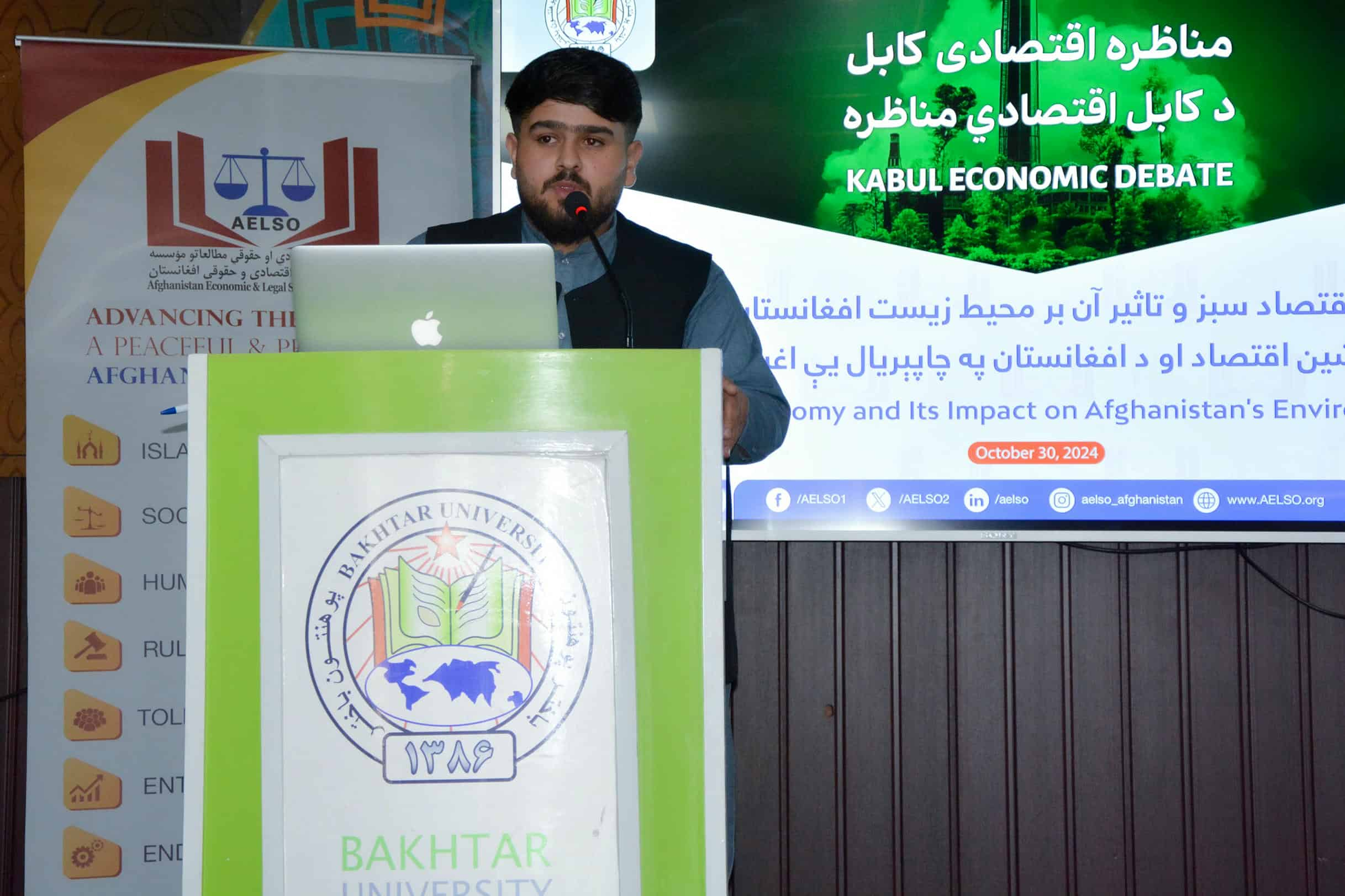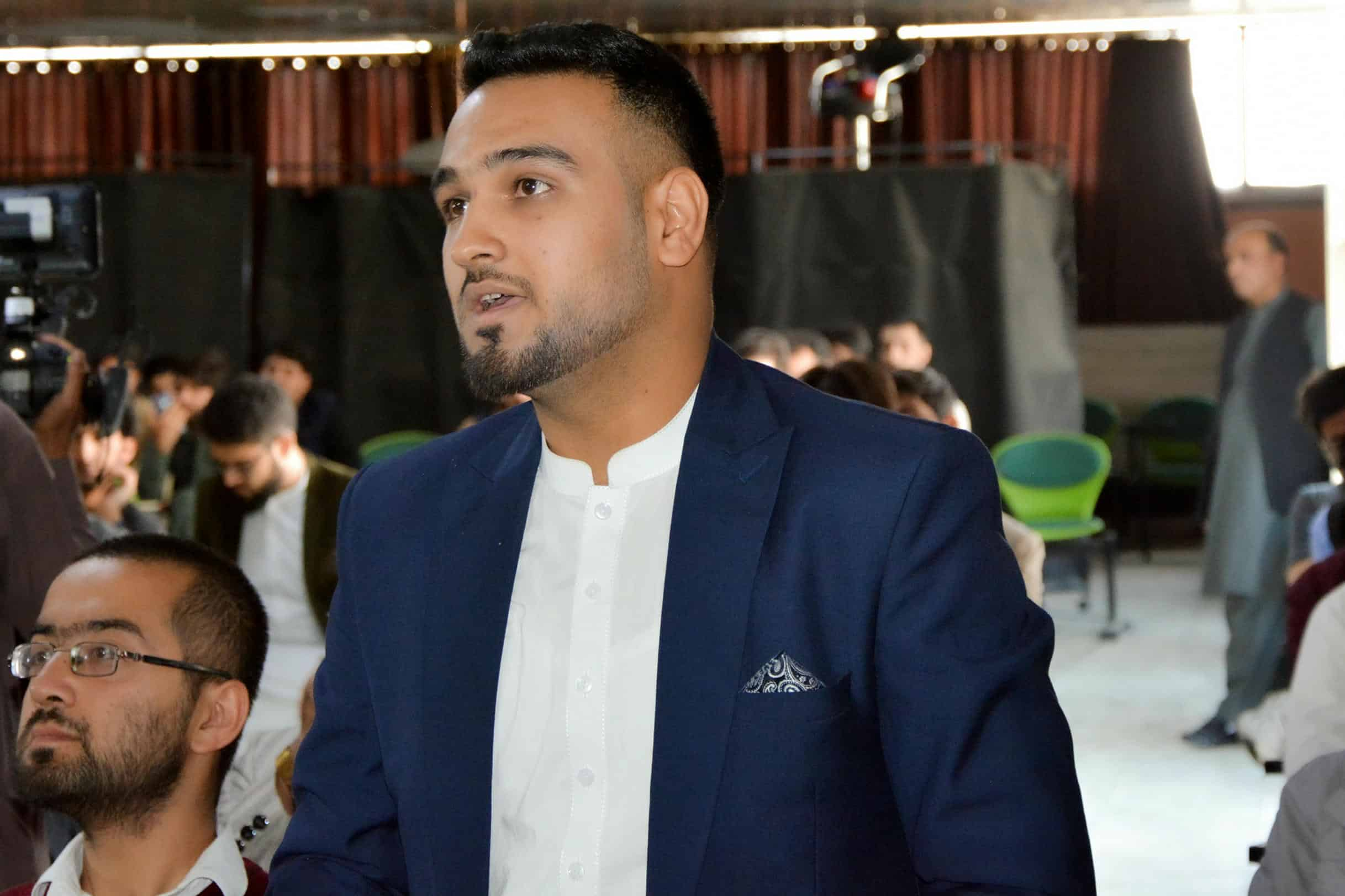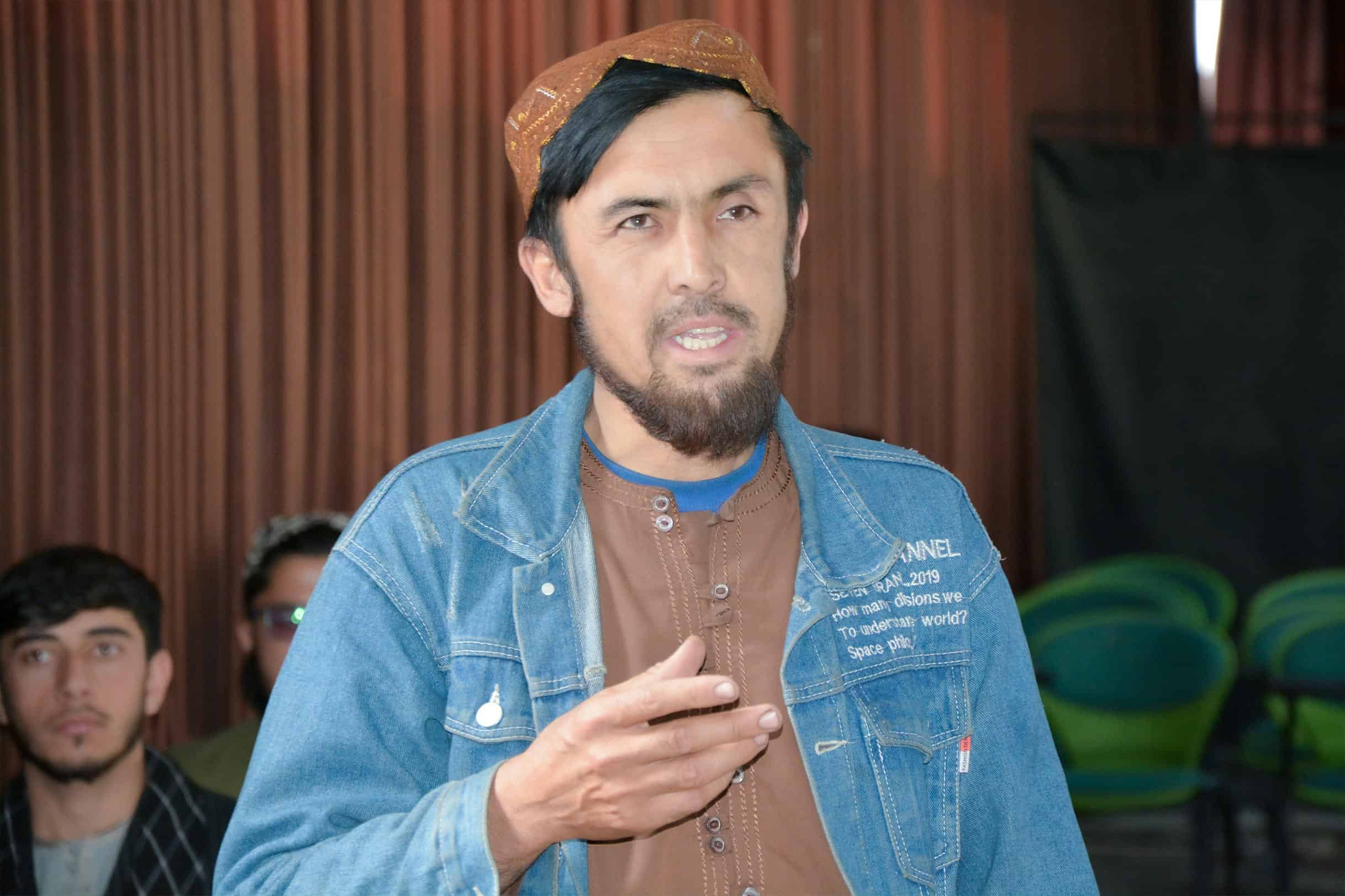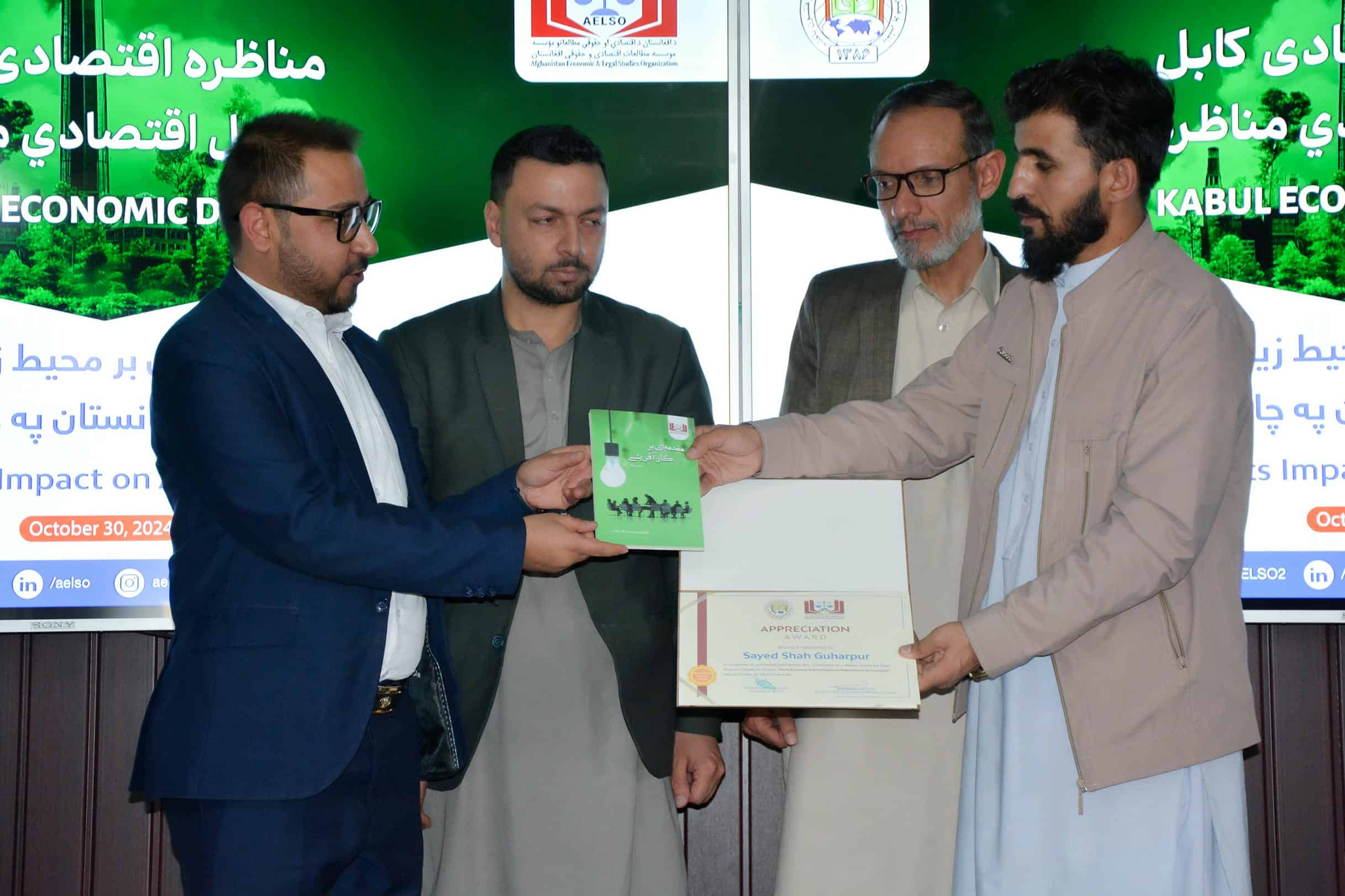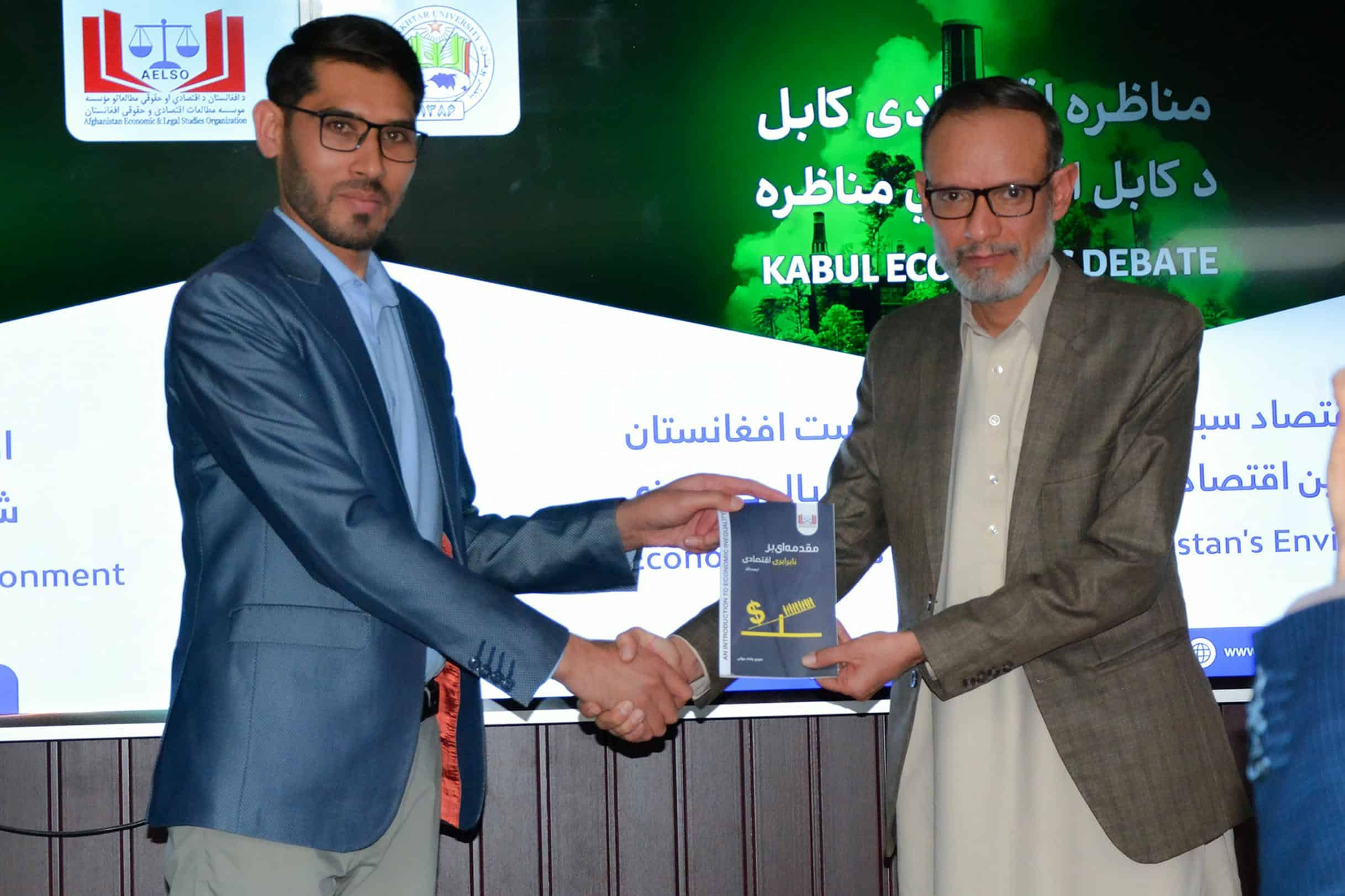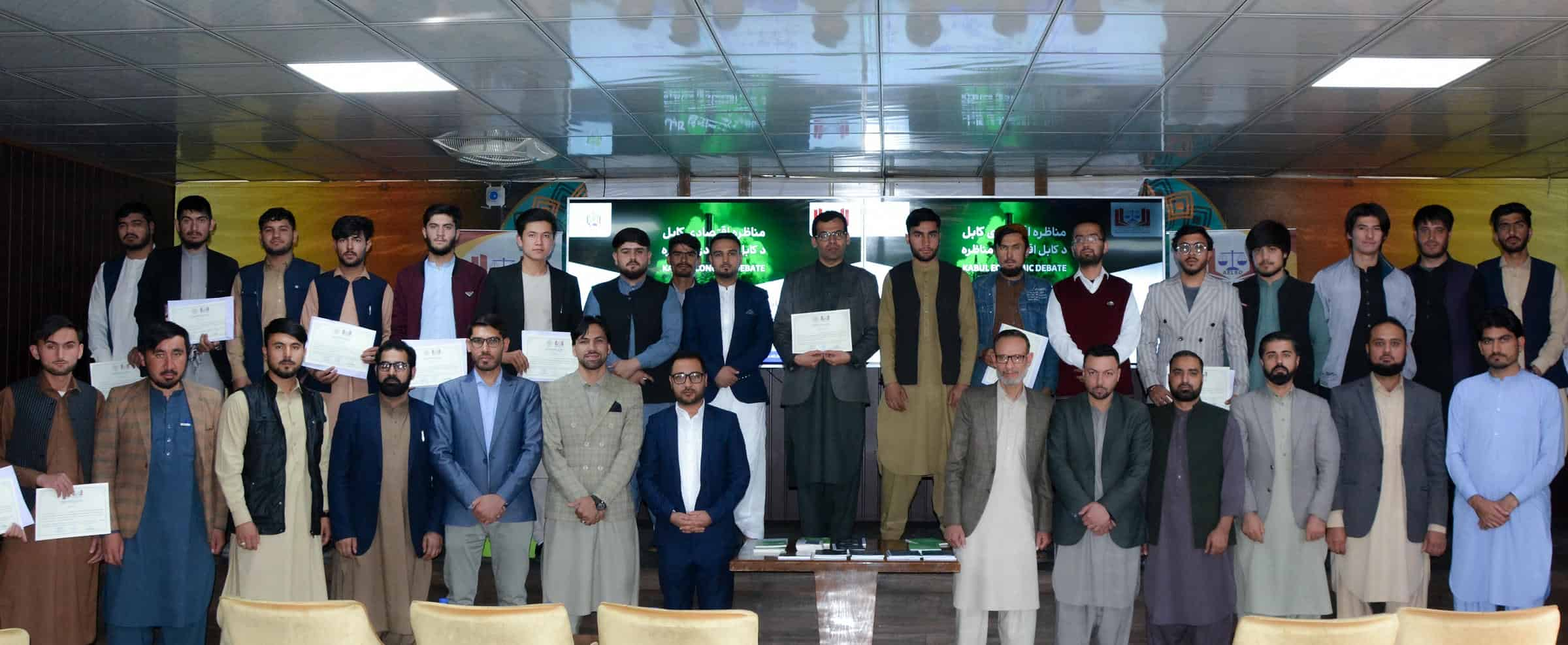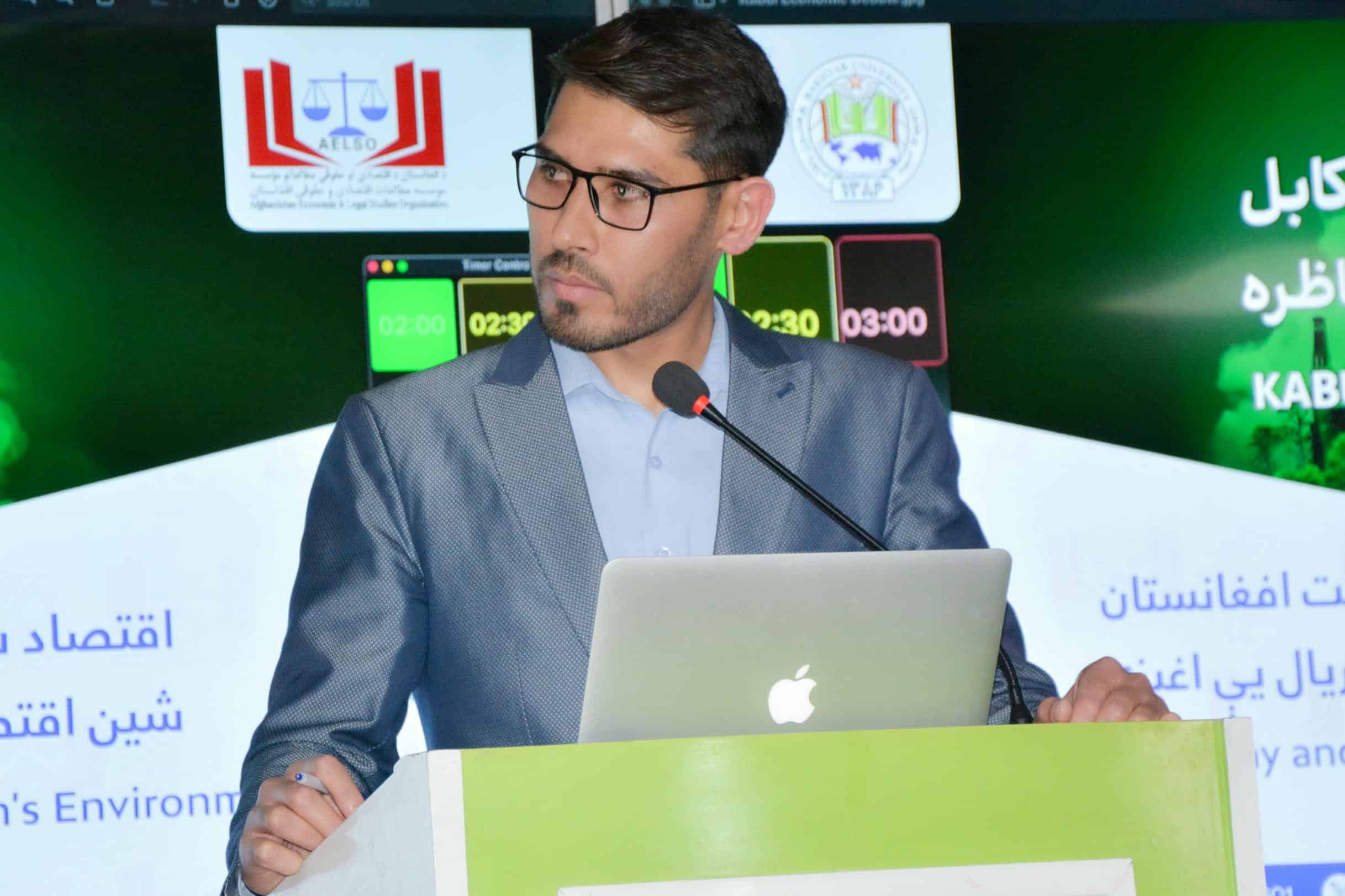
In the Kabul economic debate, emphasis was placed on achieving a green economy
Green economy is a step toward sustainable economic development and addressing environmental challenges.
The Afghanistan Economic and Legal Studies Organization (AELSO), in collaboration with Bakhtar University, organized the Kabul Economic Debate.
This debate was held with the aim of exchanging ideas, fostering critical thinking, strengthening the culture of dialogue, expanding scientific methods, and deepening awareness and learning about the green economy and its impact on Afghanistan’s environment. Experts, university professors, youth, and students participated in the event.
The program’s experts initially explained the concept of a green economy, stating that in this type of economy, social prosperity and equity are promoted while minimizing environmental harm. They emphasized that this economy seeks economic development through sustainable growth and an awareness of environmental capacities.
The program’s debaters stated that given Afghanistan’s economic challenges, job creation and improving people’s prosperity require economic development. Alongside this, environmental issues in Afghanistan have become one of the most important challenges facing the country, making it inevitable to focus on the green economy to overcome these challenges.
The program’s experts highlighted pollution in major cities and unsustainable extraction of water and natural resources as challenges for society. They stated that in Afghanistan, natural resources are overused beyond sustainable levels, and living conditions are at risk of deterioration. Addressing these issues requires diligent, scientifically-based planning and action.
The experts at the Kabul Economic Debate pointed to Afghanistan’s abundant natural resources as a crucial supportive opportunity for a green economy. They emphasized that if these resources are used wisely, professionally, sustainably, and in a timely manner, considering Afghanistan’s existing capacities, the country could become a model for green economy development.
In summarizing the debate, the program’s experts identified the production and use of renewable energy, sustainable industries and agriculture, the development of transportation systems, green tourism with a focus on environmental preservation, pollution reduction, the promotion of green jobs, investment in sustainable energy sources such as solar energy, and water management as the main practical and applicable strategies for achieving a green economy.
Participants in the Kabul Economic Debate also expressed their views and posed questions, identifying the green economy as a fundamental factor in reducing environmental pollution and protecting natural resources. They emphasized that this economy is vital for alleviating poverty, providing social support, improving quality of life, and achieving prosperity.
At the conclusion of the Kabul Economic Debate, forestry, transportation, water, agriculture, energy supply, tourism, and production and industry were identified as the primary supportive areas for a green economy. The roles and responsibilities of citizens, academic and research institutions, the private sector, the media, and the government in promoting the green economy were highlighted. Additionally, it was emphasized that achieving a green economy requires the establishment of strategies, investments, raising public awareness, integrating environmental education into the curriculum, conducting scientific research, facilitating conditions, using resources wisely and appropriately, and understanding and fulfilling individual and collective responsibilities.
The Afghanistan Economic and Legal Studies Organization expressed gratitude to all participants, especially Bakhtar University, for organizing this debate. They emphasized the importance of continuing such debates and reaffirmed their commitment to this endeavor.
Media Presence: RTA Pashto Tawana Rahe Farda TV Tamadon TV Anis Bakhtar University
